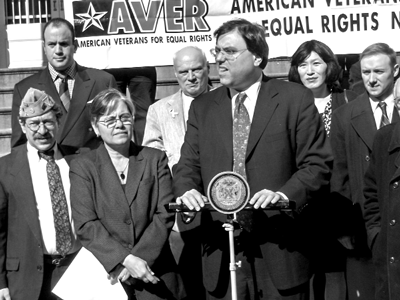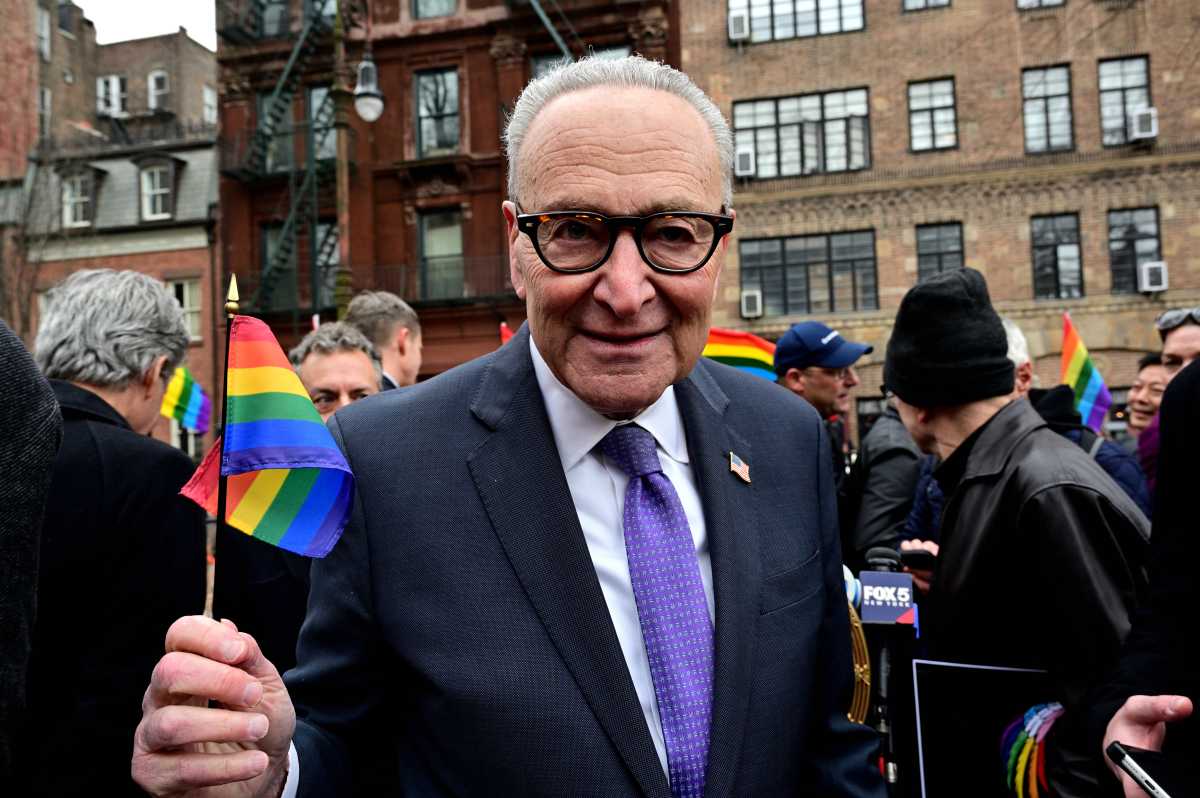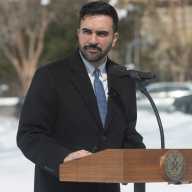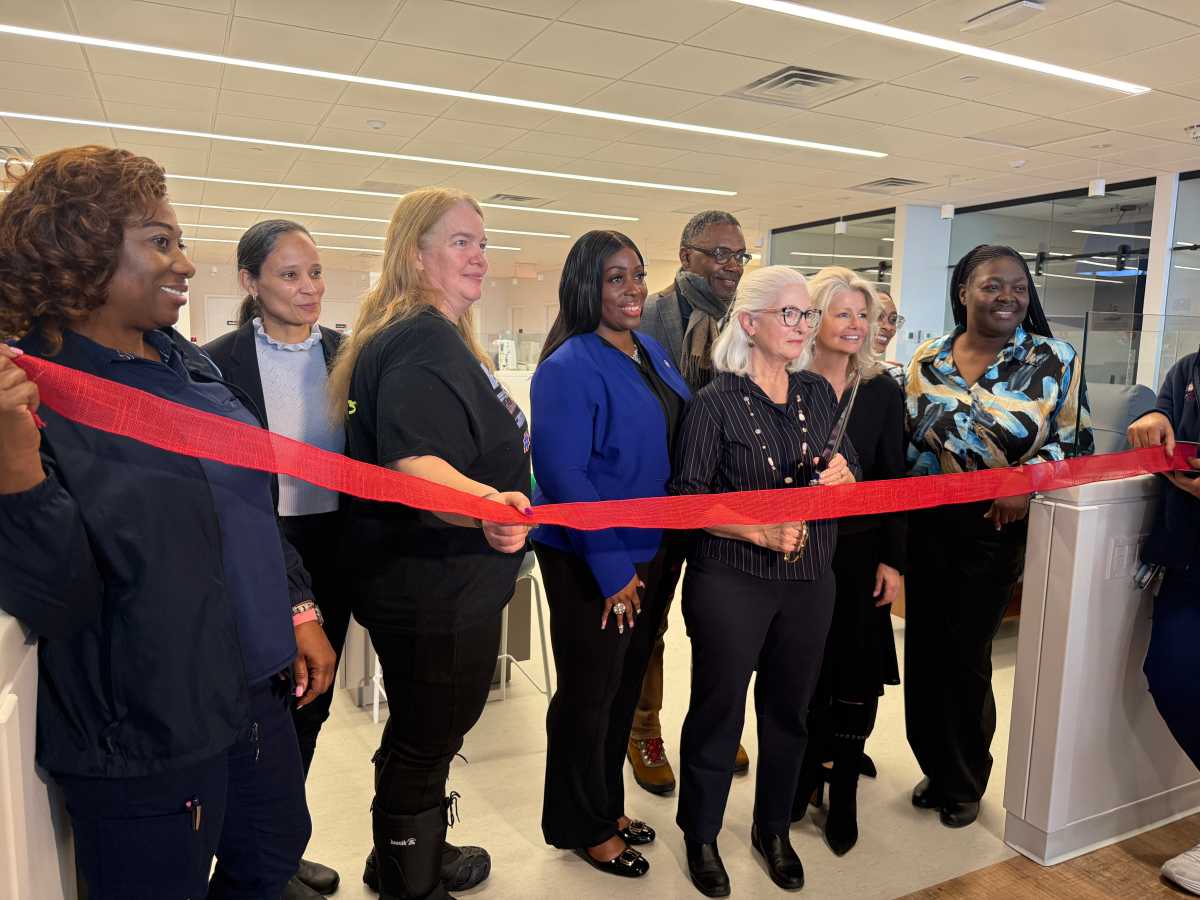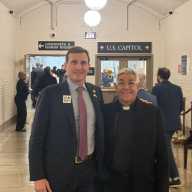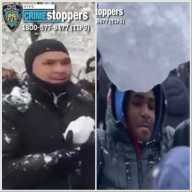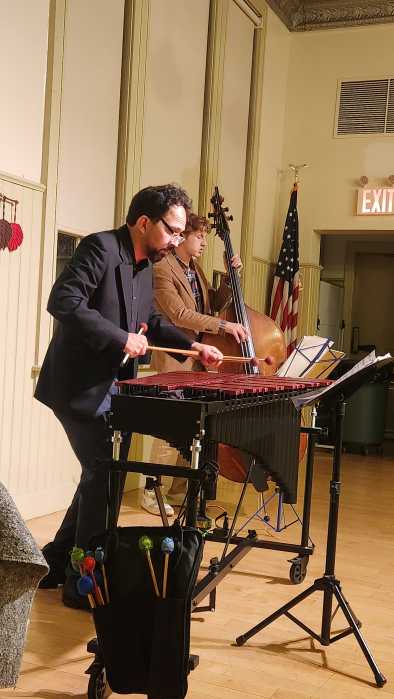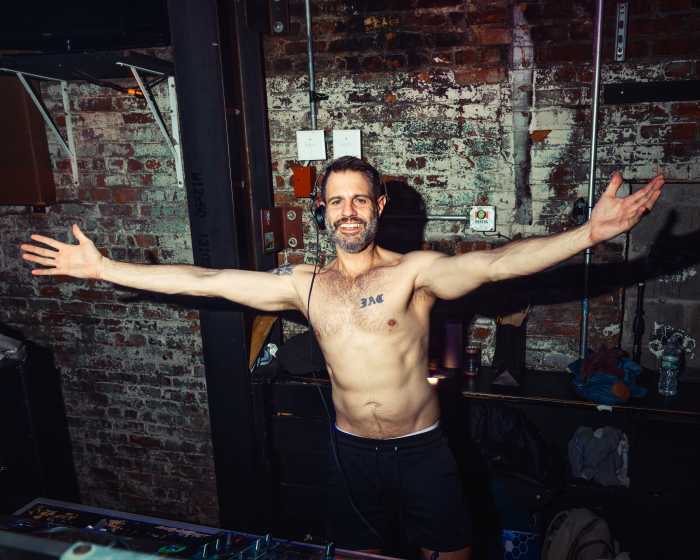By Rebecca Beyer
Without asking and without telling, there is still a lot of talk about homosexuals in the military these days.
Currently in a federal district court in Boston, 12 gay veterans, discharged because of their sexuality, are suing the Department of Defense to get their jobs back. The suit was filed with the federal circuit in Boston, the hometown of one of the plaintiffs, because it is the only state of those in which the plaintiffs live that has not reviewed a case about the “Don’t Ask, Don’t Tell” policy.
On a local level, at a March 22 hearing of the New York City Council, New York Congressmember Jerrold Nadler called the military’s selective enforcement of “Don’t Ask, Don’t Tell” a “hypocrisy of the [Bush] administration,” and called for its repeal and replacement with a nondiscriminatory policy.
“In times of peace, we had more discharges [of homosexuals], and now, in a time of war we have fewer,” said Nadler, who represents New York’s 8th Congressional District. “Clearly, it’s more important to have troops than to enforce the policy.”
Nadler was just one of several speakers at the hearing held before the State and Federal Legislation Committee of the City Council. The hearing was called to review New York City Council Resolution 438, proposed by Denny Meyer, president of American Veterans for Equal Rights New York, which calls for President Bush, Congress and the Department of Defense to overturn the current “Don’t Ask, Don’t Tell, Don’t Pursue” policy and allow gay, lesbian, bisexual and transgendered people to serve openly.
“I joined [the military] because I believed in American freedom,” Meyer said in his testimony. “And I left the service 10 years later so I could live freely.”
Meyer volunteered for the armed forces in 1968, during the Vietnam War, despite knowing that he was gay, and “served in silence” for 10 years, without expecting to be able to serve in any other way.
Now, he says, he does expect that members of the G.L.B.T. community should be allowed to serve openly, and calls for a repeal of the “pointless policy.”
The resolution before the Council comes just a few weeks after a resolution was put before the House of Representatives. The Military Readiness Enhancement Act of 2005, sponsored by Congressmember Marty Meehan (D-Mass.) and introduced on March 2, calls for the replacement of the current military policy concerning homosexuality with a policy of nondiscrimination on the basis of sexual orientation.
The issue of military readiness and national security was addressed by several speakers at the City Council hearing who questioned a policy that discharges people who are willing and ready to serve.
“Kicking out good troops who want to serve hurts the military readiness of our forces and our national security,” said Christopher Neff, senior policy advocate for the Servicemembers Legal Defense Network.
S.L.D.N. represents the 12 veterans suing the Department of Defense and challenging the constitutionality of “Don’t Ask, Don’t Tell” to get their jobs back. S.L.D.N. lost several similar cases regarding the policy in the 1990s.
Neff echoed Nadler’s statement about the hypocrisy of the policy, nothing that since the mobilization of troops for the war on terror, there has been a reduction of 40 percent in homosexual discharges.
Dr. Franklin Kameny, a gay-rights activist since 1961, testified that the military’s treatment of homosexuals is the only area of gay rights that has not seen progress in his career in activism. Kameny, who served in Europe during the Second World War before being honorably discharged in 1946, said he has resented for 62 years the lie he had to tell in order to serve.
“Clearly, to exclude personnel from our military who have much to offer gives aid and comfort to our enemies,” said Kameny, who will turn 80 in May. “Therefore, I take the position that any person, in any capacity, who in any way whatever, supports the military gay ban, is constitutionally defined as a traitor.
“I will gladly provide the cost of the hangman’s rope out of my own pocket,” he added, without cracking a smile, while those in attendance at the hearing laughed out loud, in appreciation of his testimony.
Councilmembers Alan Gerson — the resolution’s lead sponsor in the Council — and Margarita Lopez spoke in support of the resolution at a press conference after the hearing. Gerson dedicated the hearing to his gay cousin, who recently died at the age of 81 after serving in the military and being honorably discharged.
“It’s not enough that they give their lives, but they are asked to convert to liars [in order to do so],” said Lopez, an out lesbian, referring to homosexual military service members. “Stop this stupid policy and make a true society by living your life and allowing every citizen to be who they are.”



